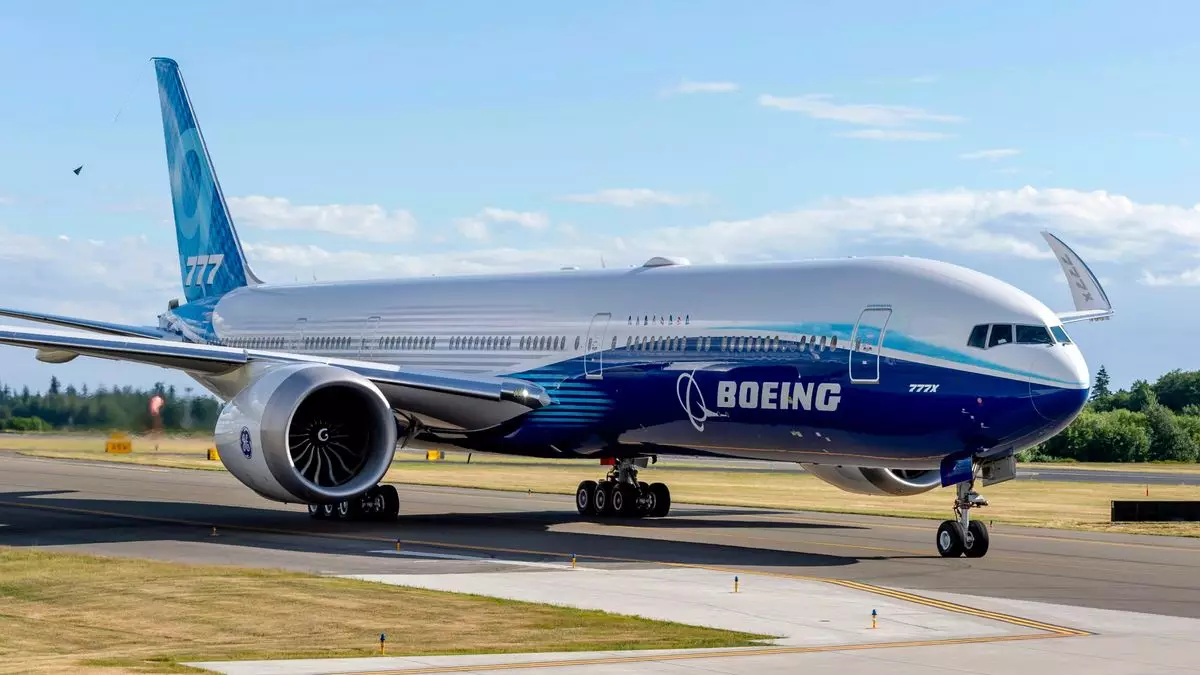In a pivotal moment for the aerospace industry and labor relations, factory workers at Boeing voted to conclude their strike after more than seven weeks of intense negotiation and turmoil. The International Association of Machinists and Aerospace Workers (IAM) successfully spearheaded this effort, resulting in a 59% approval from its members for the company’s fourth contract offer. This decisive action brings relief not only to the employees but also to Boeing, which faced a tremendous financial drain during the walkout, estimated at $50 million per day according to Bank of America analysts. Assembly lines that were idled throughout the strike can now resume operations, restoring a critical flow of production for the aircraft manufacturer renowned for its 737 series.
The contract, which includes a staggering 38% wage increase over a four-year period alongside ratification and productivity bonuses, undoubtedly reflects significant gains for the workforce. However, it fell short in one significant aspect: Boeing’s refusal to reinstate the pension plan that was frozen nearly a decade ago. This aspect has stirred mixed feelings among the workers, bringing to the forefront the challenges labor unions face in negotiating with large corporations.
While some union members embraced the deal as a step towards better compensation, others expressed disappointment at the inadequacy of the negotiations. The sentiments displayed within the voting members showed a diverse array of perspectives. For instance, Eep Bolaño, a Seattle-based calibration specialist, recognized the pragmatic necessity of accepting the deal despite perceiving it as a “humiliating” outcome, emphasizing that “we were threatened by a company that was crippled.” Such statements underline the underlying frustrations that many workers feel about the power dynamics between labor and management, especially in an industry as large and influential as Boeing.
Conversely, William Gardiner, a lab lead who has worked for Boeing for 13 years, celebrated the outcome, viewing it through a more optimistic lens. His expression of satisfaction sheds light on the deeply nuanced experience of the workforce in such negotiations. This contrast highlights an essential reality: even within the same union, opinions can vary significantly based on individual circumstances, job roles, and personal expectations.
The ramifications of this strike extend far beyond the immediate recovery of Boeing’s assembly lines. The agreement reached just prior to Election Day coincides with a broader economic landscape that includes rising inflation and careful market scrutiny of large corporations. President Joe Biden praised both the workers and Boeing for reaching an agreement that emphasizes “fairness in the workplace.” This comment encapsulates the government’s recognition of the critical role that labor plays in maintaining a balanced and equitable economy.
Moreover, Boeing’s struggles this year extend past labor relations, encompassing multiple investigations and financial pressures that have plagued the company. The recent strike is compounded by a financial forecast that included alarming projections of a $6 billion loss in the third quarter. With new leadership stepping in after the previous CEO resigned and plans to lay off thousands, this contract represents a fragile attempt to stabilize Boeing amidst ongoing scrutiny and challenges.
As workers prepare for their return to the assembly lines, it is anticipated that the transition may not be seamless. Boeing CEO Kelly Ortberg indicated that returning to full operational capacity may require retraining some staff, adding an additional layer of complexity to the recovery process. The proposed wage increase reflects a necessary adjustment to the workforce’s expectations, aligning compensation more closely with industry standards.
Yet, this newly established contract may signify the beginning of a long process toward rebuilding trust among employees and management. With the memory of past concessions and ignored demands lingering, it remains to be seen whether Boeing will invest in not only wage increases but also in establishing a more equitable working environment.
As Boeing embarks on this crucial phase of recovery, the importance of open communication and collaboration cannot be understated. The road ahead will require both management and labor to engage in meaningful dialogue to address outstanding concerns adequately, ensuring that the events of this striking period guide the company towards a more balanced future.


Leave a Reply